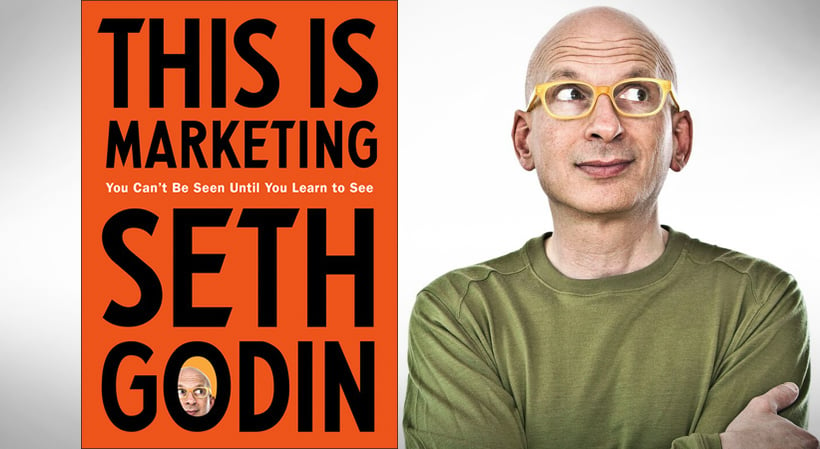The following is excerpted from “This Is Marketing: You Can’t Be Seen Until You Learn to See“ by Seth Godin, in agreement with Portfolio, an imprint of Penguin Publishing Group, a division of Penguin Random House LLC. Copyright © Seth Godin, 2018.
Here’s the truth about customer traction: a miracle isn’t going to happen.
The old‑school marketer’s dream revolves around transforming a product, this normal, average, “it’s fine” product or service… the one that’s sitting there, with nothing much happening. Transform it into a hit.
The dream is that with public relations, with hype, with promotion, with distribution, with ad buys, with influence marketing, with content marketing, and with a little bit of spam… the dream is that it will become the “it” thing, and everyone will want it. It will be popular precisely because it’s popular.
But you’re not fooled by this.
Sure, every so often a superstar is born, but most of the time, this approach merely leads to failure. Expensive failure.
The alternative is to seek a path, not a miracle. And that path begins with customer traction.
Here’s what I want to know about your VC–backed Silicon Valley startup: How many people outside of HQ use it every day? How often are they sending you suggestions to make it better?
Here’s what else I want to know: How many people are insisting that their friends and colleagues use it? As in right now.
Do they love it? Do they love themselves more because they love you?
That restaurant you just opened: How many people come back night after night to eat there, bringing new friends each time?
Or that booth at the farmers’ market, or the nonprofit you’re starting, or your local babysitting service.
Who would miss it if it were gone?
If you can’t succeed in the small, why do you believe you will succeed in the large?
A thousand true fans
In 2008, Kevin Kelly, founding editor of Wired, wrote an essay that described the simple truth of the smallest viable market.
For the independent creator of intellectual property (a singer, perhaps, or a writer), it turns out that a thousand true fans might be sufficient to live a better‑than‑decent life.
To quote Kevin, “A true fan is defined as a fan that will buy anything you produce. These diehard fans will drive two hundred miles to see you sing; they will buy the hardback and paperback and Audible versions of your book; they will purchase your next figurine sight unseen; they will pay for the ‘best‑of’ DVD version of your free YouTube channel; they will come to your chef’s table once a month. If you have roughly a thousand true fans like this (also known as super fans), you can make a living—if you are content to make a living but not a fortune.”
Free Digital Skills Training: From Sales KPIs to Authentic Branding
That’s one thousand people who will support you on Patreon, or one thousand people who will buy your new project on Kickstarter the day you launch it. It’s one thousand people who not only care about your work but also spread the word to those around them.
The challenge for most people who seek to make an impact isn’t winning over the mass market. It’s the micro market. They bend themselves into a pretzel trying to please the anonymous masses before they have 50 or 100 people who would miss them if they were gone.
While it might be comforting to dream of becoming a Kardashian, it’s way more productive to matter to a few instead.
“This Is Marketing: You Can’t Be Seen Until You Learn to See” is available now at fine booksellers.
Seth Godin headshot courtesy of Brian Bloom







